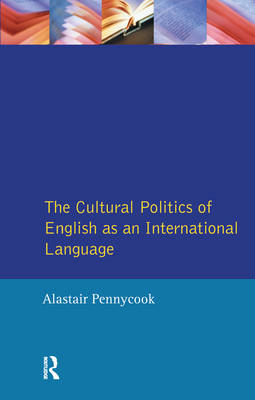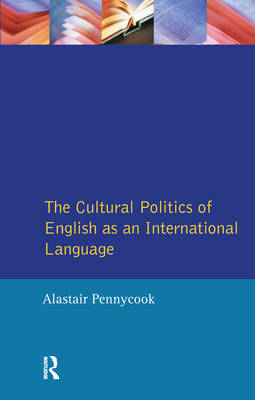
- Afhalen na 1 uur in een winkel met voorraad
- Gratis thuislevering in België vanaf € 30
- Ruim aanbod met 7 miljoen producten
- Afhalen na 1 uur in een winkel met voorraad
- Gratis thuislevering in België vanaf € 30
- Ruim aanbod met 7 miljoen producten
Zoeken
The Cultural Politics of English as an International Language
Alastair Pennycook
€ 290,45
+ 580 punten
Uitvoering
Omschrijving
This book examines ways to understand the cultural and political implications of the spread of the English language. It explains how English has developed as an international language by examining its colonial origins, the connections to linguistics and applied linguistics and the relationship to the global spread of teaching practices. It offers a critical approach, developing an alternative understanding of English, suggesting that it can never be removed from the social, cultural, economic or political contexts in which it is used.
Specificaties
Betrokkenen
- Auteur(s):
- Uitgeverij:
Inhoud
- Aantal bladzijden:
- 458
- Taal:
- Engels
- Reeks:
Eigenschappen
- Productcode (EAN):
- 9781138142480
- Verschijningsdatum:
- 31/03/2016
- Uitvoering:
- Hardcover
- Formaat:
- Genaaid
- Afmetingen:
- 140 mm x 216 mm
- Gewicht:
- 580 g

Alleen bij Standaard Boekhandel
+ 580 punten op je klantenkaart van Standaard Boekhandel
Beoordelingen
We publiceren alleen reviews die voldoen aan de voorwaarden voor reviews. Bekijk onze voorwaarden voor reviews.











